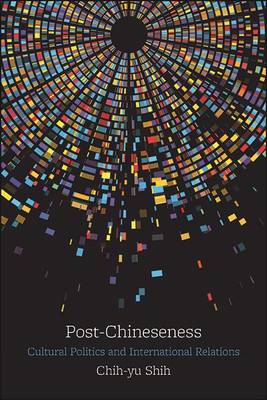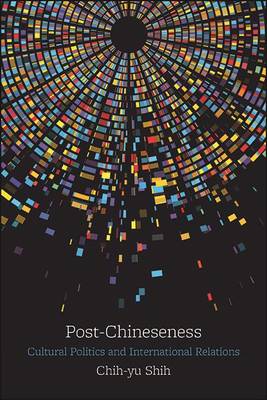
- Retrait gratuit dans votre magasin Club
- 7.000.000 titres dans notre catalogue
- Payer en toute sécurité
- Toujours un magasin près de chez vous
- Retrait gratuit dans votre magasin Club
- 7.000.0000 titres dans notre catalogue
- Payer en toute sécurité
- Toujours un magasin près de chez vous
Description
Analyzes international and cultural relationships informed by "China," a category that is becoming ever more indispensable and yet unstable in everyday narratives.
There have been few efforts to overcome the binary of China versus the West. The recent global political environment, with a deepening confrontation between China and the West, strengthens this binary image. Post-Chineseness boldly challenges the essentialized notion of Chineseness in existing scholarship through the revelation of the multiplicity and complexity of the uses of Chineseness by strategically conceived insiders, outsiders, and those in-between. Combining the fields of international relations, cultural politics, and intellectual history, Chih-yu Shih investigates how the global audience perceives (and essentializes) Chineseness. Shih engages with major Chinese international relations theories, investigates the works of sinologists in Hong Kong, Singapore, Pakistan, Taiwan, Vietnam, and other academics in East Asia, and explores individual scholars' life stories and academic careers to delineate how Chineseness is constantly negotiated and reproduced. Shih's theory of the "balance of relationships" expands the concept of Chineseness and effectively challenges existing theories of realism, liberalism, and conventional constructivism in international relations. The highly original delineation of multiple layers and diverse dimensions of "Chineseness" opens an intellectual channel between the social sciences and humanities in China studies.
Spécifications
Parties prenantes
- Auteur(s) :
- Editeur:
Contenu
- Nombre de pages :
- 358
- Langue:
- Anglais
- Collection :
Caractéristiques
- EAN:
- 9781438487717
- Date de parution :
- 01-04-22
- Format:
- Livre relié
- Format numérique:
- Genaaid
- Dimensions :
- 152 mm x 229 mm
- Poids :
- 698 g

Les avis
Nous publions uniquement les avis qui respectent les conditions requises. Consultez nos conditions pour les avis.






